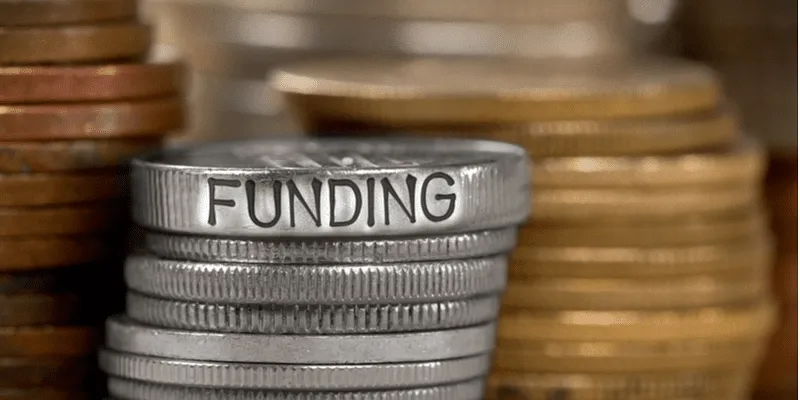[YS Learn] What deeptech sector agnostic Inflexor’s Managing Partner, Jatin Desai looks for in startups
In a conversation with YourStory, Jatin Desai, Managing Partner, Inflexor Ventures, talks about what he looks for in startups and founders during pitching sessions.
Though a sector agnostic fund, Inflexor Ventures’ main focus is on deep tech ventures and startups. The SEBI registered early-stage technology-focussed VC fund marked its first close at Rs 230 crore in September 2020.
Investors in the fund include SBICap Ventures, SIDBI (from Fund of Funds for Startups), some of India’s marquee family offices and HNIs. The fund launched early this year, has seen significant interest from LPs with the entire corpus being raised amidst COVID-19.

Jatin is also a board observer/member and mentor for multiple Parampara Fund’s portfolio companies including Atomberg, Playshifu, SecurAx, Entropik, Cloudsek, Verloop, Singularity, and Bellatrix.
He has over two decades of global experience spanning fund management, investments, entrepreneurship, technology/operations roles. He is a key member of the Indian startup ecosystem and was also a vibrant partner of the US startup ecosystem in the 90s.
Jatin was the CIO of Bank of America & DSP Merrill Lynch in India. Before joining the bank, Jatin spent several years in the US, EMEA, and India in various roles dealing with Wall Street firms, Fortune 500 companies, SMEs and startups.
In a conversation with YourStory, Jatin outlines the important expectations from a startup at the pitching stage.
Edited excerpts from the conversation.
YourStory (YS): What are you looking for in startups and their teams?
Jatin Desai (JD): Our investment thesis is still the same as it was pre-COVID i.e. we look for companies that are leveraging deep tech/IP and innovation to differentiate themselves. Our focus is on products that have a high entry barrier in terms of tech and can scale up in both domestic and international markets. We look for early revenues and product market fit and try to be the first institutional investor for our early stage investments.
Due to increased focus on automation and digitisation post-COVID, our investment theme, we believe, has been validated even further.
YS: Do you have any sector preferences and why?
JD: We are a sector-agnostic fund and are open to looking at opportunities across sectors as long as there is a strong technology moat and decent market size around the product. This is even demonstrated by our Fund I portfolio where we have invested in consumertech, cybersecurity, edutech, spacetech, cleantech and AI-ML based companies with use cases across sectors.
Having said that, few of the sectors that we want to focus more on from our Fund II perspective are fintech, agritech, healthtech, consumertech, spacetech, cleantech and others.
YS: What qualities do you look for in founders?
JD: We look at their profiles and background, passion and conviction for business, dedication to achieve the desired goals, flexibility in adapting to market dynamics and the grit to tide over any crisis. These are key qualities of founders that will be important in a post-COVID world.
While not a deal breaker, having relevant domain experience or past entrepreneurial/ startup experience gives the founders an upper hand in managing their business better and not repeating the mistakes they committed in their earlier stints.
YS: What are the key things you look for in a pitch?
JD: The first step would be to see if the product/offering fits in our basic investment thesis of technology IP/ innovation/ deeptech, and if it has a decent market size. Post that we look for founder qualities, which we discussed above and the initial commercial traction.
Founder’s vision and clarity of thoughts on scalability, product roadmap, competition, go-to-market, future overseas expansion and exit path for investors are other important factors of consideration.
YS: What are the dos and don’ts founders keep in mind while making a pitch deck?
JD:An ideal pitch deck should be crisp and concise and have the right flow to cover all the essential elements. Must have items in the pitch deck should be - founder profile, business problem being solved, market size, competition, traction, product and tech roadmap, Go-To-Market, fund ask and usage, 3-5 years projections and exit plan.
Any other supporting info can be put in annexures for referencing later if required. Ideally a short demo will also help in understanding the offering and value proposition better in the first or second pitch. Avoid overly aggressive projections without any basis or very low current traction and don't undermine the competition.
YS: What should founders keep in mind while raising funds in times of crisis like now?
JD: It’s competitive to raise funding in any environment and even more so during a crisis of such a magnitude. If you are in a sector that’s in favour right now, do raise a bit more than required to have some buffer.
If you are not, then you will have to work and convince investors much harder for their allocation, but that can be mitigated by having a good business case for fund raising.
YS: What is your advice to founders on the pitching process itself?
JD: Be yourself, be confident and passionate while pitching. Don’t oversell or exaggerate too much as investors can easily see through. Accept shortcomings, if any, and have a plan/solution handy to fix that.


![[YS Learn] What deeptech sector agnostic Inflexor’s Managing Partner, Jatin Desai looks for in startups](https://images.yourstory.com/cs/2/a9efa9c02dd911e9adc52d913c55075e/Imagexaae-1603795702260.jpg?mode=crop&crop=faces&ar=2%3A1&format=auto&w=1920&q=75)
![[YS Learn] Y Combinator’s Anu Hariharan, an early investor in Razorpay, Meesho, spills the beans on fundraising](https://images.yourstory.com/cs/2/a9efa9c02dd911e9adc52d913c55075e/oieQJYgROmJDQtK-1602504505580.jpg?fm=png&auto=format&h=100&w=100&crop=entropy&fit=crop)
![[YS Learn] What BEENEXT’s Teruhide Sato looks for in startups and founders](https://images.yourstory.com/cs/2/a9efa9c02dd911e9adc52d913c55075e/Imaged73j-1602231835840.jpg?fm=png&auto=format&h=100&w=100&crop=entropy&fit=crop)




